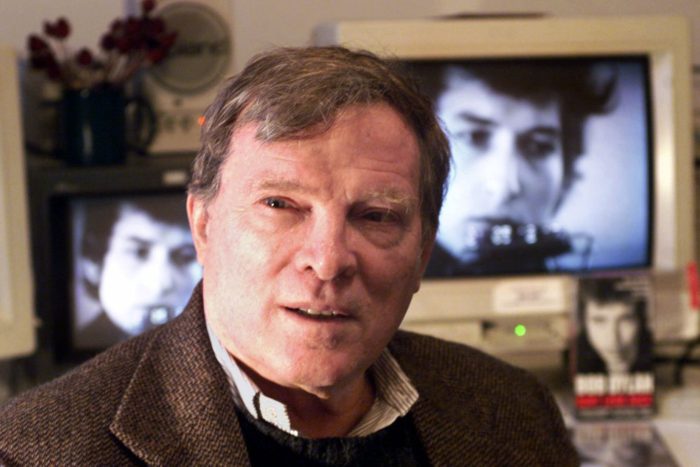
D.A. Pennebaker, one of the leaders of cinema verite, and the maker of “Don’t Look Back,” the groundbreaking documentary about Bob Dylan, died yesterday at 94. I was privileged to take a class from Pennebaker while at Cooper Union in the late 70s. He was one of a number of extraordinary, inspiring professors I encountered there — influences that I carry with me always.
Pennebaker wasn’t exactly a great teacher. The class was held in his studio, and he mostly showed films and talked non-stop. I remember trying to interject comments into the stream of his monologues without success. Even questions were hard to get in. But what he had to say was worth paying attention to. He was intense, but at the same time warm and likable.
The kind of filmmaking he espoused, cinema verite, or direct cinema, was still relatively new at that time and had its detractors. The question was, and remains, is it possible to maintain a neutral stance as an observer — to be a fly-on-the-wall and nothing more. The same goes for still photography. It’s a question I continue to wrestle with.
Some years later, my friend Suzanne Vega, the songwriter, was working with Pennebaker on a promotional film. She was doing a special appearance at Speakeasy, the tiny folk club in Greenwich Village. At one point she took me aside and said “Brian let me introduce you to D.A. Pennebaker,” assuming that I would be thrilled to meet the esteemed documentarist. I reminded him that I was one of his former students at Cooper and we yakked for several minutes as if we were old friends. Suzanne was a bit stunned, as I recall.
I realized at that moment, talking with him in a closet-sized dressing room at Speakeasy, that someone with a personality as voluble as Pennebaker’s could never have been a true fly-on-the-wall. He was hardly the invisible cameraman that I had imagined trailing Dylan on tour in England. That revelation does not necessarily detract from my admiration of “Don’t Look Back,” but I now understand better the contradictions and complexities of that film and others like it.